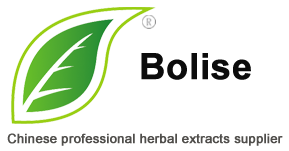药学
Pharmacognosy is the study of medicines derived from natural sources.生药学是对天然来源药物的研究。 The American Society of Pharmacognosy defines pharmacognosy as "the study of the physical, chemical, biochemical and biological properties of drugs, drug substances or potential drugs or drug substances of natural origin as well as the search for new drugs from natural sources.美国生药学协会将生药学定义为“对药物,药物物质或潜在药物或天然药物物质的物理,化学,生化和生物学特性的研究,以及从自然资源中寻找新药物的研究。
The word "pharmacognosy" derives from the Greek words pharmakon (drug), and gnosis or "knowledge".单词“ pharmacognosy”源自希腊语pharmakon(drug)和诊断或“知识”。 The term pharmacognosy was used for the first time by the Austrian physician Schmidt in 1811. Originally - during the 19th century and the beginning of the 20th century - "pharmacognosy" was used to define the branch of medicine or commodity sciences ("Warenkunde" in German) which dealt with drugs in their crude, or unprepared, form.奥地利医师Schmidt于XNUMX年首次使用药理学一词。最初-在XNUMX世纪和XNUMX世纪初-“药理学”用于定义医学或商品科学的分支(“ Warenkunde”德国)以原始或未经制备的形式处理毒品。 Crude drugs are the dried, unprepared material of plant, animal or mineral origin, used for medicine.粗制药物是植物,动物或矿物来源的干燥未制备的材料,用于药物。 The study of these materials under the name pharmakognosie was first developed in German-speaking areas of Europe, while other language areas often used the older term materia medica taken from the works of Galen and Dioscorides.以pharmakognosie的名义对这些材料进行的研究最早是在欧洲的德语区进行的,而其他语言区则经常使用从Galen和Dioscorides的作品中提取的较早的本草术语。 In German the term drogenkunde ("science of crude drugs") is also used synonymously.在德语中,术语drogenkunde(“粗制药物科学”)也被同义词使用。

 亚洲生物医药研究院
亚洲生物医药研究院 博利斯有限公司
博利斯有限公司

